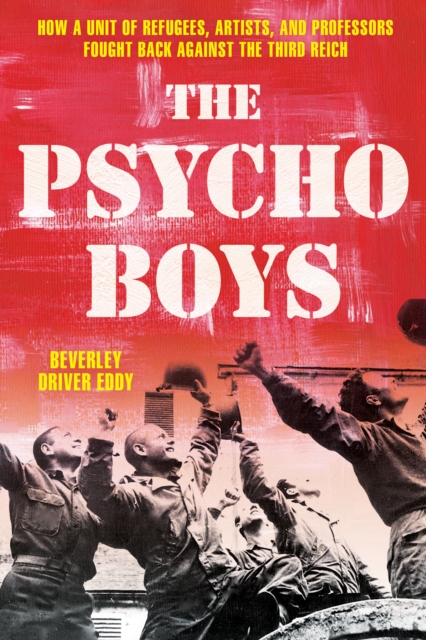The Psycho Boys: How a Unit of Refugees, Artists, and Professors Fought Back Against the Third Reich

The Psycho Boys: How a Unit of Refugees, Artists, and Professors Fought Back Against the Third Reich
They were not your typical World War II soldiers. Most were not in particularly good physical shape, and many had trouble handling their weapons. They differed widely in their ages, politics, and skills. Many worked in academia, media, and the arts. They were a strange mix of Americans and foreign nationals, immigrants, and refugees, linked by their language skills, knowledge of Europe, and a desire to defeat the Axis. During the war, the U.S. Army trained them in psychological warfare at a secret camp on the Gettysburg battlefield and then sent them to Europe. They became known as "Psycho Boys," a group of soldiers who have never received their due respect. In this book Beverley Driver Eddy, author of Ritchie Boy Secrets, tells their rarely heard story and argues for their importance to the Allied war effort.
At Gettysburg the Psycho Boys were taught the various skills that would be necessary in the European campaign from D-Day onward: prisoner and civilian interrogation, broadcasting, loudspeaker appeals, leaflet and newspaper production, and technical support. The 800 men were divided into four mobile radio broadcasting companies and sent to Europe to land on D-Day, fight in Normandy and at the Bulge, and participate in the conquest of Germany and the liberation of the concentration camps. Some of the soldiers operated well out in front of Allied lines and - in German - called on enemy soldiers to surrender. Others worked behind the lines, printing propaganda leaflets and making radio broadcasts.
Drawing on company histories, memoirs, and veteran interviews, this book traces the history of the 2nd, 3rd, 4th, and 5th Mobile Radio Broadcasting Companies and the individuals who served in them. For far too long, these soldiers were maligned as mere "paragraph troopers," because they fought with words rather than bullets. As Eddy shows, the Psycho Boys hastened victory and saved countless lives by encouraging enemy soldiers to desert or surrender. Their story is an important and fascinating contribution to World War II scholarship.
PRP: 155.92 Lei
Acesta este Prețul Recomandat de Producător. Prețul de vânzare al produsului este afișat mai jos.
124.74Lei
124.74Lei
155.92 LeiLivrare in 2-4 saptamani
Descrierea produsului
They were not your typical World War II soldiers. Most were not in particularly good physical shape, and many had trouble handling their weapons. They differed widely in their ages, politics, and skills. Many worked in academia, media, and the arts. They were a strange mix of Americans and foreign nationals, immigrants, and refugees, linked by their language skills, knowledge of Europe, and a desire to defeat the Axis. During the war, the U.S. Army trained them in psychological warfare at a secret camp on the Gettysburg battlefield and then sent them to Europe. They became known as "Psycho Boys," a group of soldiers who have never received their due respect. In this book Beverley Driver Eddy, author of Ritchie Boy Secrets, tells their rarely heard story and argues for their importance to the Allied war effort.
At Gettysburg the Psycho Boys were taught the various skills that would be necessary in the European campaign from D-Day onward: prisoner and civilian interrogation, broadcasting, loudspeaker appeals, leaflet and newspaper production, and technical support. The 800 men were divided into four mobile radio broadcasting companies and sent to Europe to land on D-Day, fight in Normandy and at the Bulge, and participate in the conquest of Germany and the liberation of the concentration camps. Some of the soldiers operated well out in front of Allied lines and - in German - called on enemy soldiers to surrender. Others worked behind the lines, printing propaganda leaflets and making radio broadcasts.
Drawing on company histories, memoirs, and veteran interviews, this book traces the history of the 2nd, 3rd, 4th, and 5th Mobile Radio Broadcasting Companies and the individuals who served in them. For far too long, these soldiers were maligned as mere "paragraph troopers," because they fought with words rather than bullets. As Eddy shows, the Psycho Boys hastened victory and saved countless lives by encouraging enemy soldiers to desert or surrender. Their story is an important and fascinating contribution to World War II scholarship.
Detaliile produsului









